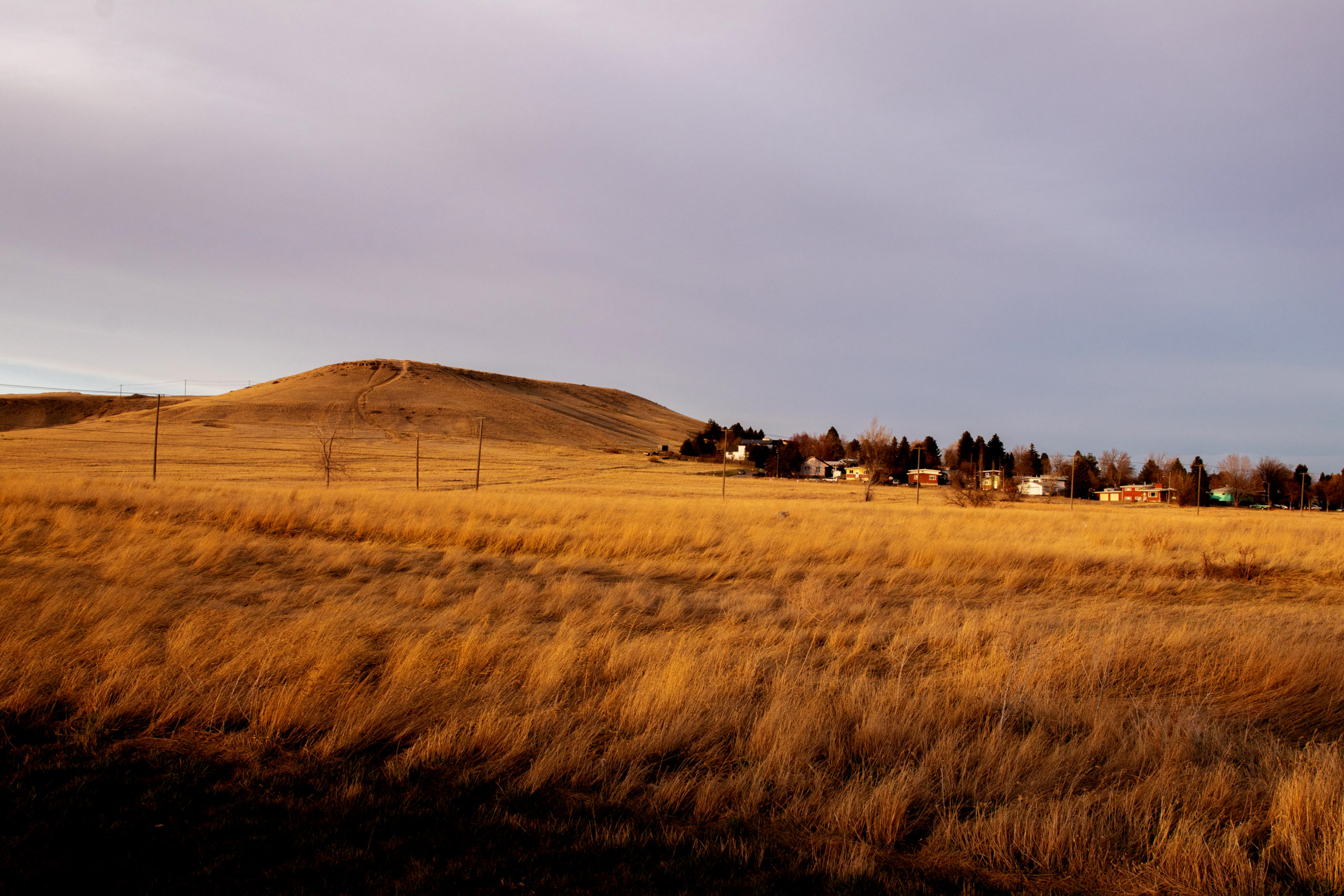
Independence through Access
Little Shell tribe forges a path to health care
Written by Lena Beck, Photos by Megan Johnson
One spring day when Julia Gladeau was a child, her aunt asked her to keep an eye on her younger siblings. Her aunt and Gladeau’s pregnant mother walked across Hill 57 and out of sight.
“We’re going to go find the Easter Bunny for you up there at that other shack,” her aunt had said. “We’ll be back in a little bit.”
When they returned down the hill, her mother had a baby girl in her arms. “Look what the Easter Bunny brought you,” she said. “It’s a baby, and her name is Shirley.”
Gladeau’s daughter, Julie Mitchell, heard that story many times growing up.
Enlarge
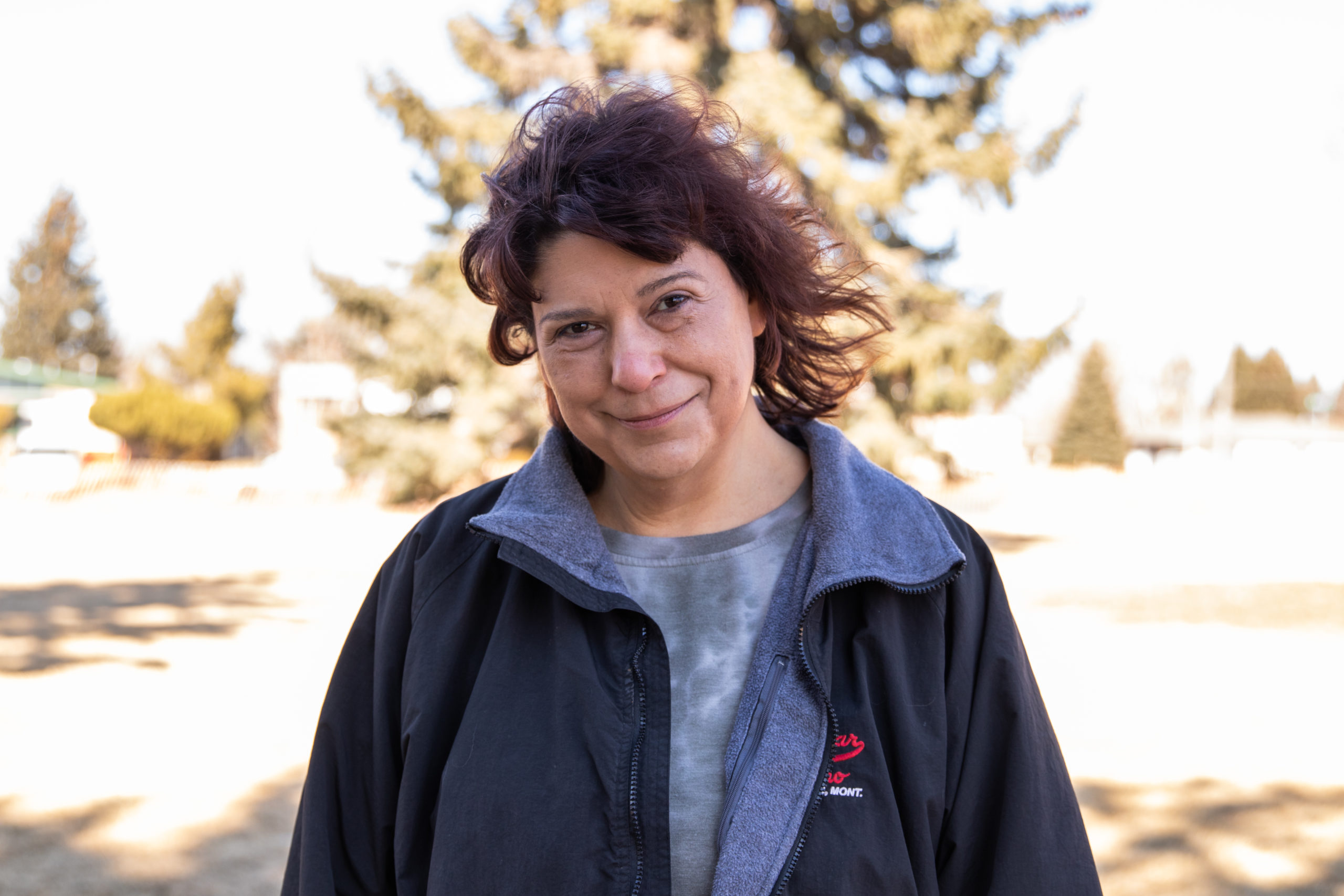
“They had her right on Hill 57,” Mitchell said. “My grandma’s sister went up there and helped her have her in that other shack on dirt floors.”
Hill 57 sits on the edge of Great Falls and was home to a settlement of the Little Shell tribe. Even in the late 1930s when Mitchell’s aunt was born, there were plenty of doctors and hospitals in the growing industrial town.
The Little Shell Tribe of Chippewa Indians has a tumultuous history with the state of Montana. Because of that, the tribe’s access to institutionalized health care has always been unreliable. In December of 2019, the Little Shell were finally recognized by the federal government as a sovereign nation.
Not even three months later, the world was hit with the onset of the COVID-19 pandemic. Because of their newly recognized status, the Little Shell received $25 million in CARES Act funding, as part of a federal pandemic relief program. The Little Shell are using that money to build a health center of their own, taking ownership of their access to health care at long last.
***
Investing in a health center of their own was one of the first big purchases for the tribe. The Little Shell bought a former veterinary clinic with just over $1 million of CARES Act funds and are spending another million on a complete interior renovation. The Little Shell Tribal Health Clinic is scheduled to open in some capacity later this year.
University of Montana professor Dave Beck studies tribal sovereignty and said Little Shell’s move to build a health clinic makes sense. But moving forward, Beck said one of the keys to success is economic development.
“What you want to be able to do is build a diverse economic base, so you’re not relying on any one source of income,” Beck said. “Especially so you’re not simply relying on income from the federal government, because that might never be enough to create a healthy infrastructure for your community.”
This is because the CARES Act money that the Little Shell used to buy their clinic won’t last forever. Ultimately, the tribe will need alternate sources of funding.
The Little Shell tribe is currently collaborating with the Indian Health Service to develop a plan for running the clinic, though no details have been finalized. Working with the notoriously bureaucratic federal department could prove difficult.
IHS is the division of the U.S. Department of Health and Human Services that facilitates Native American health care. They are responsible for more than 230 hospitals and clinics throughout the country. This includes six IHS-run units in the service area spanning Montana and Wyoming.
IHS provides the medical services treaty-promised to tribes by the federal government. Therefore, it only serves members of federally recognized tribes, which means that the Little Shell didn’t qualify for services until December of 2019. But funding for IHS is a continual problem.
The IHS budget for the 2021 fiscal year is $6.2 billion, in comparison to 2020 when it was $6 billion. Based on IHS data from 2015-2020, IHS spent $4,078 per person for medical care in a year, barely half of the national average.
According to Mary-Lynne Billy of the Indian Family Health Clinic in Great Falls, the federal government hasn’t proportionately increased the IHS budget enough to account for population increases and health care inflation.
“The Indian Health Service budget does not account nor has it historically ever accounted for health care inflation,” Billy said. “It doesn’t progressively account for the cost of the changing conditions of health care and the increase in costs, it just stays the same. So consequently, you see the complete continuation of rationing of health care.”
Billy said that number should have grown to as much as $50 billion in order to accommodate inflation and the growing population served by IHS. Data from the National Congress of American Indians confirms that the disparity between what the IHS budget is and what it should be is tens of billions of dollars.
So in order to not depend solely on federal entities, Little Shell chairman Gerald Gray said the tribe’s long-term goal is to build economic sovereignty. Gray plans to create diverse business holdings to generate income for the Little Shell, to ensure that the tribe can run operations like the clinic successfully.
Still, what that will actually look like is a work in progress. IHS has received $5.8 million to help the Little Shell set up a Purchase/Referred Care program, which will allow IHS to pay non-IHS providers for health care services that occur outside of the IHS system. Additionally, in December of 2020 IHS awarded the Little Shell a Tribal Management Grant to conduct a feasibility study of the Little Shell’s health management capabilities. This grant will help prepare the Little Shell to manage its own clinic.
To help lead the way, Gray used grant funds to hire Molly Wendland as health director for the clinic. She is currently acting as the go-between for the Little Shell and IHS. Wendland, with a background in medical administration, says this is new territory for everybody. This is the first time this regional service area of IHS has seen a newly federally recognized tribe open a clinic. Wendland says they are learning from each other as they go.
“We are building the plane as we fly it,” Wendland said.
***
Gray sees this clinic as a critical next step in what has been a long journey toward access to institutionalized health care.
Enlarge
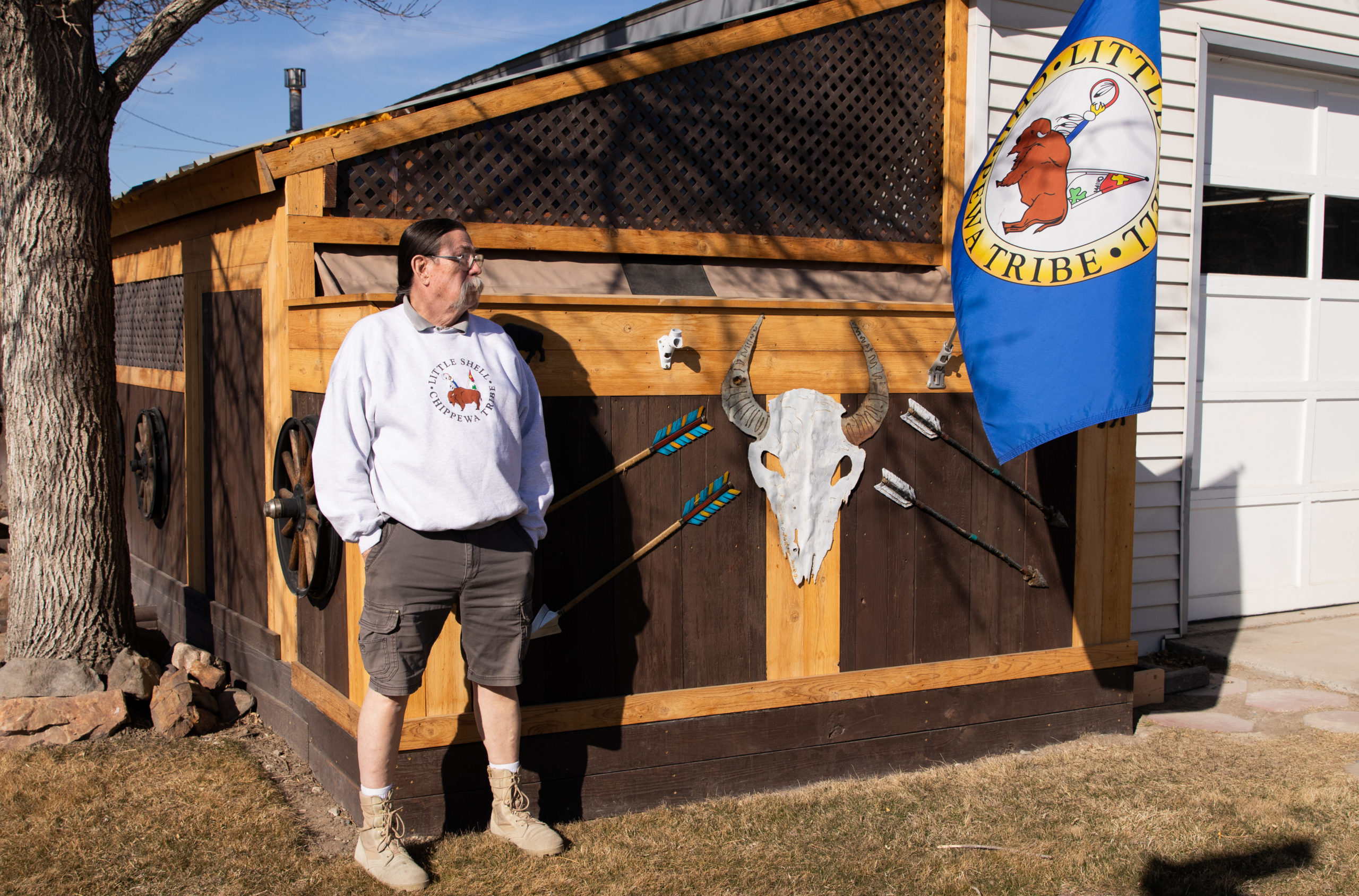
Because the Little Shell did not have access to IHS prior to their federal recognition, they’ve had to depend on other sources of health care. Many Little Shell members have been instrumental in creating those spaces for others in the tribe.
Daniel Pocha is a Little Shell elder who lives in Helena. He grew up there, and as an adult took over the family business, Pocha Brothers Upholstery. He spends many of his days cutting and stitching fabric in his workshop, which is adjoined to his house. Pocha speaks softly, but has a lively sense of humor and makes jokes wherever possible, even while talking about his line of work.
“It was kind of a toss-up between an upholsterer, a carpenter and a mechanic,” Pocha said. “Upholsterers grew old with all their fingers. I thought that was better.”
But in addition to upholstery, Pocha also sat on the board of the Helena Indian Alliance for years. During that time, he sought to help urban Native Americans like the Little Shell gain access to health care.
In 1981 the Helena Indian Alliance opened the Leo Pocha Memorial Clinic in Helena, named after his father. Today, 78% of all Native Americans live in urban spaces away from reservations and their IHS centers. Urban Indian clinics like the Memorial Clinic serve members of any tribe, federally recognized or not.
“Our belief was that if we could not provide services, we would help you acquire that service,” Pocha said. “Because health is that important.”
Though the advent of Urban Indian clinics helped, many Little Shell members still found themselves being forced to travel to get specialist care. Julie Mitchell remembers that 20 years ago, she had to drive her four-year-old daughter to Browning in order to get her tonsils removed. Mitchell didn’t have insurance at the time, and traveling to the Blackfeet reservation was the only way to get the procedure without being handed the entire bill.
The drive to Browning from Great Falls is nearly two hours, made longer by the fact that Mitchell had to keep stopping the car to tend to her sick child.
“It was super hard,” Mitchell said. “She was sick in the back and I had to keep pulling over, and give her water and lay her back down.”
At the clinic in Browning, Mitchell remembers feeling neglected, like they’d been put in a room and forgotten about. Her daughter got the procedure, but they had to spend the night in the hospital. If they’d been in Great Falls, they would have just gone home. But it was too far to travel in case there were complications.
And there were complications. Without warning, Mitchell’s daughter began to vomit blood uncontrollably.
“They just kind of ignored her and put her in a room and all the blood swarmed to her stomach,” Mitchell said. “And then she threw it up all over. I was freaking out.”
Fortunately, her daughter made a full recovery. But the memory still makes Mitchell shiver with fear.
Mitchell curled up next to her daughter in her hospital bed and tried to sleep. But she wouldn’t rest much. Why can’t we get care at home? Mitchell wondered. Where is our space in the healthcare system?
***
It’s a sunny day in March, but the wind chill keeps it from feeling very warm. Little Shell elder Louella Fredricksen and her best friend Darrel Rummel sit at a plastic-top table at Lippi’s, their favorite spot to catch a bite.
Lippi’s Kitchen is an eclectic diner just off Central Avenue in Great Falls. Its walls are decorated with artwork and gadgets collected over the years, and in the corner is a spinning pie display. Lippi’s pies are legendary.
The pandemic has been lonely for Fredricksen and Rummel, who are both elders. In normal times, they do everything together. Others have described them as “joined at the hip.” They go to lunch at Lippi’s, to community dances and they’ve even been known to travel together in Fredricksen’s old camper van. Usually, they drive to other parts of the state to go to Little Shell gatherings. Once, they flew down to San Antonio for a rodeo.
But at the onset of the pandemic, all of those fun outings came to a grinding halt. Rummel and Fredricksen still spoke on the phone just about every day, but it wasn’t the same. Since they’ve been vaccinated, they can take up some of their old hobbies again, starting with Lippi’s. Fredricksen sips a black tea, while Rummel sprinkles salt on her hashbrowns.
Enlarge
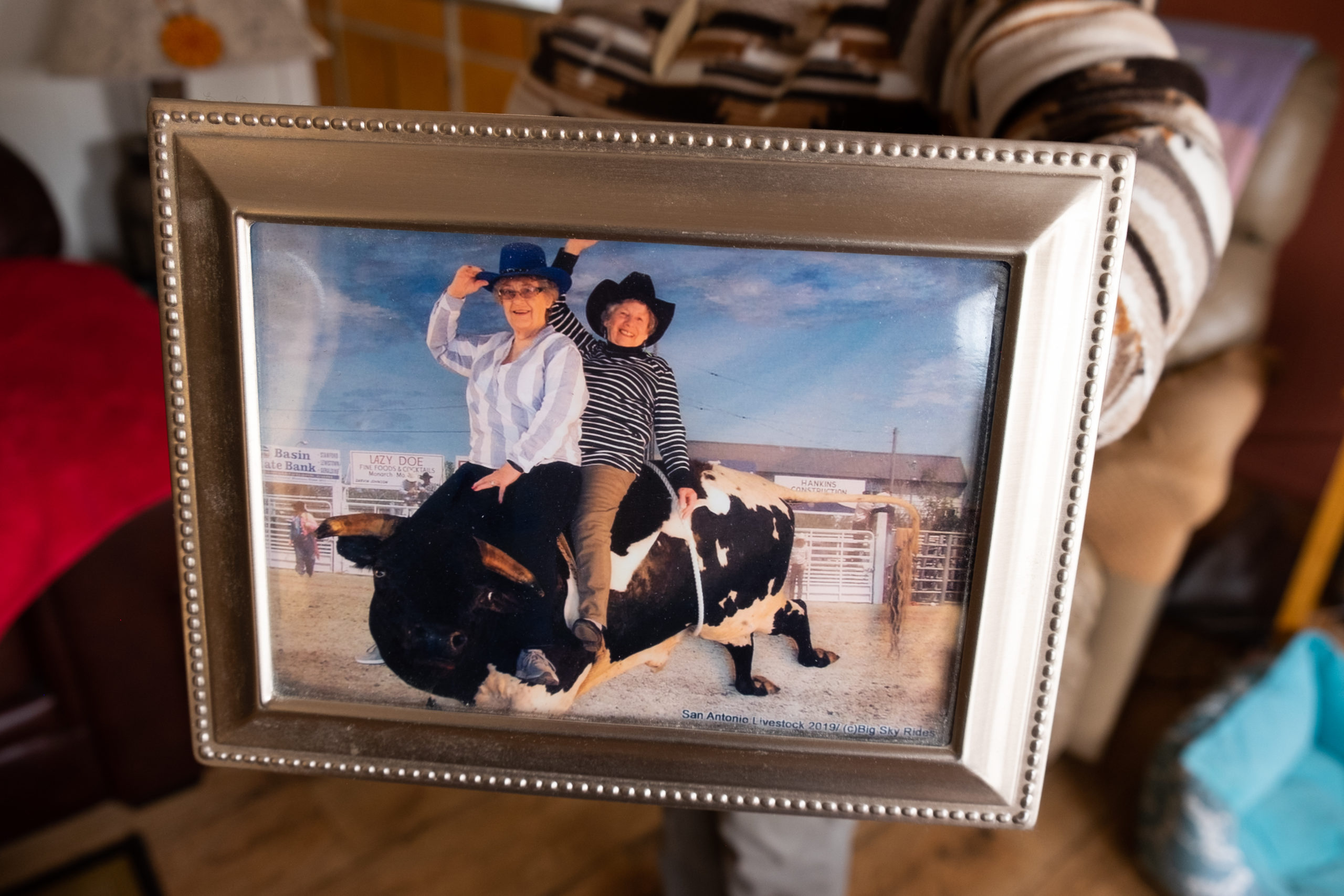
Rummel and Fredricksen got their vaccines at the Cascade County Fairgrounds. The day they went in to get their shots turned into the biggest social outing they’d had in months.
“It was just so nice to get out and see people and talk to people in person,” Fredricksen said.
When they got back into the car, Fredricksen turned to Rummel. “Wasn’t this fun?” she said.
Little Shell Tribal Health Director Molly Wendland was there at the fairgrounds when they got their vaccines. With the new Little Shell clinic not open at the time, she coordinated with the pre-established infrastructure of the Cascade City-County Health Department to ensure that members of the Little Shell could get vaccinated.
“The two times I went, I didn’t even know they gave me a shot,” Rummel said. “They did such a good job. And it didn’t get sore afterwards.”
Wendland desperately wanted to be involved with building the Little Shell’s first in-house medical infrastructure. Last October she got her wish. She was outside in her yard, trying to get a coat of paint on her house before winter’s arrival, when her phone rang. On the other end of the line was Chairman Gerald Gray, asking her if she would be the tribe’s first-ever health director.
“I was just so excited,” Wendland said. “I had to take a break and celebrate for a minute.”
Despite the clinic not being open yet, Wendland is already hard at work. She spends every day doing an amalgamation of different tasks, everything from directing construction to coordinating COVID-19 vaccinations. She also spends a lot of time coordinating care for members in other cities and states. She wants to be able to provide answers to those who cannot visit the clinic in person.
Currently, the clinic is gutted, but not empty. Construction workers are methodically working away inside, installing lighting and infrastructure that will give way to patient rooms and a waiting area.
Within those spaces, Wendland plans to orchestrate a medical venue that addresses holistic needs. Not just basic medical services, but dental, vision and specialist care. This includes additional programming like cultural practices, a community garden, food baskets and campaigns against non-traditional tobacco use. Wendland has also helped establish a transit service that will take elders to wherever they need to go, around Great Falls or out of town.
Rummel and Fredricksen said specialist care will be especially useful for tribal elders. Fredricksen had to drive the five-and-a-half hours to Coeur d’Alene, Idaho for dental treatment a few years ago just to get a more affordable rate than she could find in Great Falls.
“I think with our elders, there’s so many that have hearing problems, eye problems, [and] dentures,” Fredricksen said. “So this clinic will really be a big help for us.”
Fredricksen also said she wants to use the new transit service to get up to Havre to visit her family so she doesn’t have to drive that far by herself. But additionally, Rummel and Fredricksen are excited about how mental health, tobacco, and natural medicine initiatives can help the tribe’s younger generations.
Both women agree, they are excited and anxious for the clinic to open.
When the waitress came to clear the dishes, Rummel grabbed her remaining piece of bacon before letting her plate be taken.
“We’re really looking forward to getting this up and running,” she said.
***
Because of the intricate processes involved in starting a health center, some services may be years from coming to fruition.
Chairman Gray isn’t discouraged by this, but rather considers it an opportunity to lay the foundation for a successful health center. For now, he is trying to manage the expectations of Little Shell members.
“A lot of members thought that once we got federally recognized that everything will be instant,” Gray said. “It doesn’t work like that.”
Though it may be slow-going, Gray feels confident in his choice to invest in a clinic devoted to Little Shell health. Gray said it will be a place where Little Shell members will never be turned away. For many years, Little Shell members like Julie Mitchell have even been rejected from IHS clinics on other tribes’ reservations.
Mitchell’s husband grew up on the Rocky Boy’s reservation. Once while visiting, Mitchell cut her leg. She couldn’t stop the bleeding on her own, so her mother-in-law took her to the IHS clinic a mile away from her house so she could get stitches. But Little Shell was still an unrecognized tribe at the time, and so the clinic turned her away.
“They refused me medical care there at that time, because they said I was from a non-federally recognized tribe,” Mitchell said. “You’re not considered an Indian.”
Mitchell applied pressure to her leg while her mother-in-law drove her 30 miles down the road to the next clinic, where Mitchell paid out of pocket. Even at a clinic run by another tribe, the message felt clear: You don’t belong here.
But that is all about to change. With a new clinic soon to open, and a sovereign government being built, the future looks strong. The next generation of Little Shell members is coming into adulthood as a new chapter for the tribe begins.
Enlarge
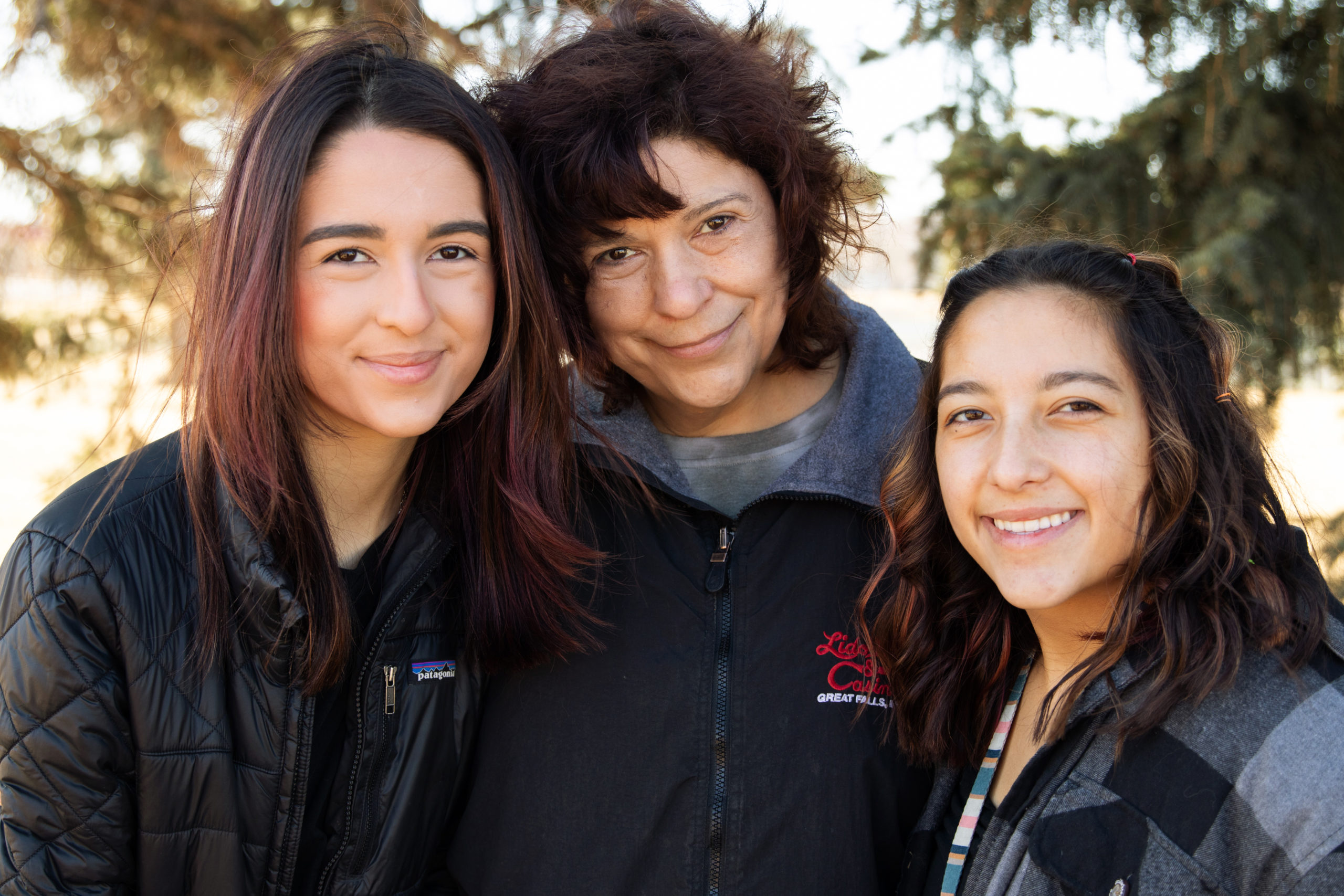
Mitchell’s 19-year-old twin daughters, Rylee and Madison, are students at Great Falls College. Rylee shows promise as a writer, already having written for the Great Falls Tribune. Madison is leaning towards something more medical, maybe nursing.
She can envision a career in nursing in Great Falls, maybe even at the Little Shell’s new tribal health center. She’s young now, and so is the clinic, but they’re both fulfilling something that has long been in the making. She would be helping provide the kind of health care that her grandmother’s generation was denied.
To Julie Mitchell, it’s an affirmation of something she has always known.
“We belong here,” Mitchell said.
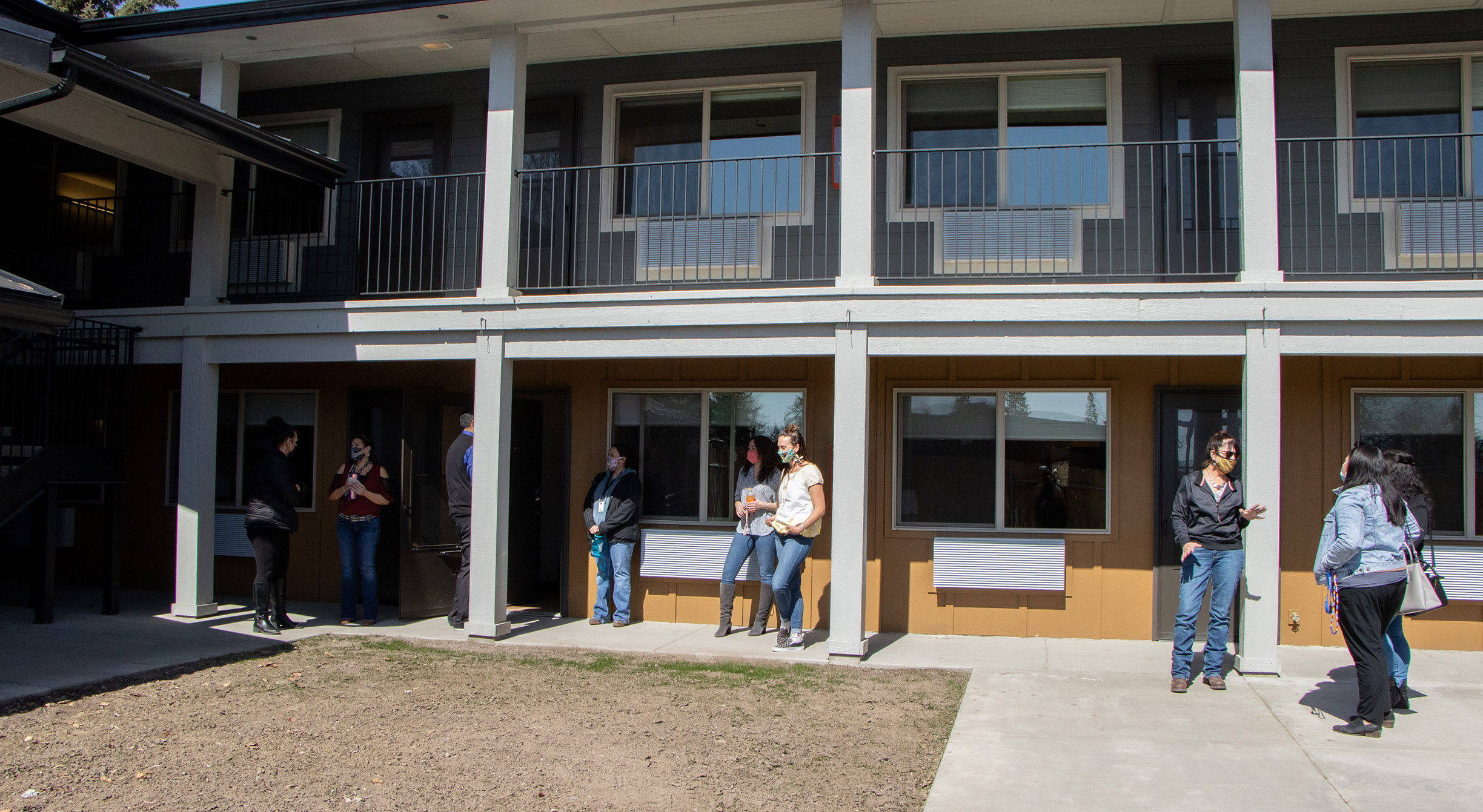
Previous
A Home that Isn’t
